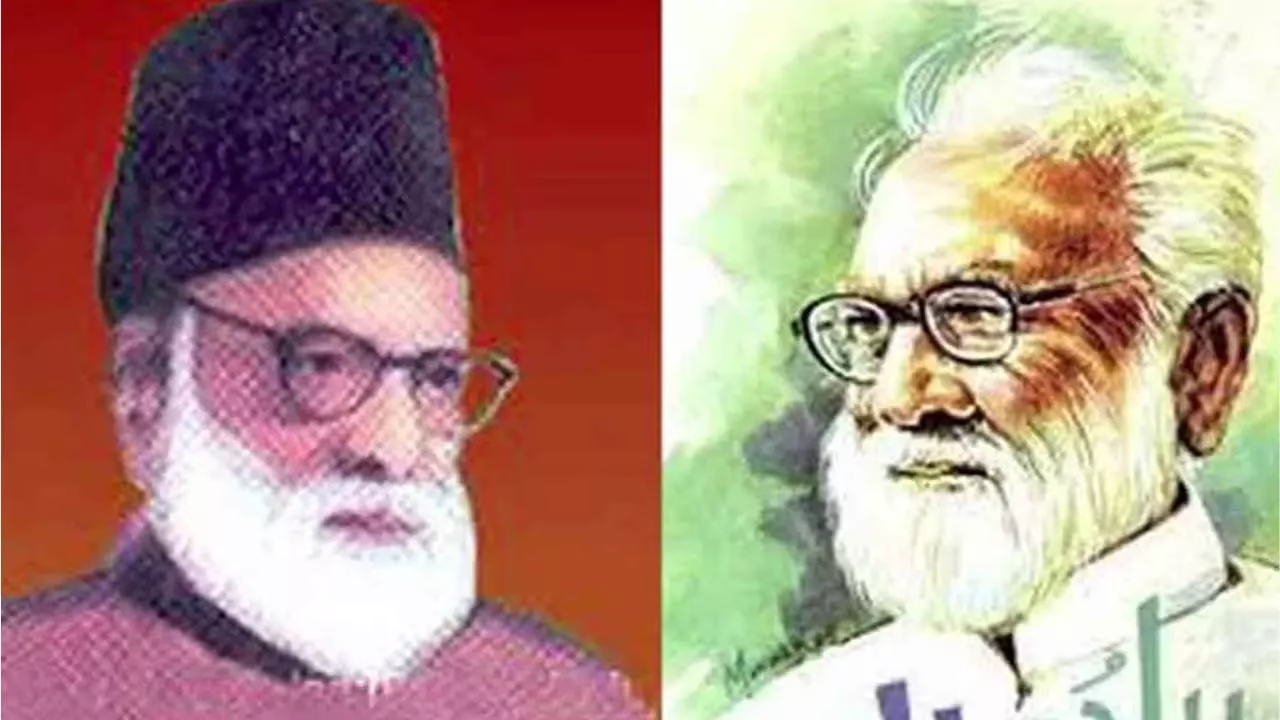Baba-e-Urdu Maulvi Abdul Haq remains one of the most influential figures in the history of Urdu language and literature. Known for his unmatched dedication to the promotion of Urdu, he was not only a scholar but also a linguist, teacher, researcher, and institution-builder. His tireless efforts helped shape Urdu as a unifying language for the people of the Indian subcontinent, and his legacy continues to inspire language enthusiasts and educationists to this day.
Early Life and Love for Urdu
Born in 1870 in Hapur, India, Maulvi Abdul Haq developed a passion for languages from an early age. His educational journey led him to acquire a deep understanding of classical Persian and Arabic, which laid the foundation for his mastery of Urdu. This early interest evolved into a lifelong mission — to make Urdu accessible, respected, and central to education and cultural identity.
Founding of Anjuman Taraqqi-e-Urdu
One of the defining moments in the career of Baba-e-Urdu Maulvi Abdul Haq was the establishment of Anjuman Taraqqi-e-Urdu. Founded in 1903, this organization became the driving force behind the promotion, preservation, and standardization of Urdu. Under his leadership, the Anjuman published countless books, organized conferences, and campaigned for Urdu to be recognized as a language of education and administration.
Even after the partition of India in 1947, Maulvi Abdul Haq continued his mission in Pakistan. He relocated the Anjuman’s headquarters to Karachi and expanded its activities, ensuring that Urdu remained at the heart of Pakistan’s cultural identity.
Pioneer of Urdu Educational Institutions
Baba-e-Urdu Maulvi Abdul Haq understood that the growth of a language is closely tied to its role in education. He spearheaded the creation of several key institutions, including:
- Urdu Arts College
- Urdu Science College
- Urdu Commerce College
- Urdu Law College
These institutions not only promoted higher education in Pakistan but also ensured that Urdu remained the medium of instruction in academic and professional fields. His vision was to produce graduates who were equally proficient in their discipline and in the national language.
The Title of Baba-e-Urdu
In 1935, Muhammad Yousuf, a student at Osmania University, conferred the title of Baba-e-Urdu upon Maulvi Abdul Haq. The title quickly gained popularity and became an inseparable part of his name. For the people of the subcontinent, it was a recognition of his life’s work and his role as the foremost champion of the Urdu language.
Recognition and Awards
Over his lifetime, Baba-e-Urdu Maulvi Abdul Haq received numerous honors. Among the most prestigious was the Presidential Award for Excellence, presented to him by the Government of Pakistan on March 23, 1959. This award was a formal acknowledgment of his decades of service to the language and education.
In addition, his contributions have been memorialized through commemorative stamps issued by the Pakistan Post, ensuring that future generations remember his impact on the nation’s linguistic and cultural heritage.
Legacy in Urdu Literature and Linguistics
Maulvi Abdul Haq was not just an administrator and institution-builder — he was a prolific writer and researcher. He compiled dictionaries, wrote essays on linguistics, and studied the etymology of Urdu words. His publications continue to serve as reference works for scholars and students alike.
Today, many of his writings are preserved in libraries and archives across Pakistan and India. Linguists credit him with modernizing Urdu grammar and standardizing its orthography, which helped unify speakers from different regions.
Death and Enduring Influence
Baba-e-Urdu Maulvi Abdul Haq passed away in Karachi on August 16, 1961. His death marked the end of an era, but his influence endures. Every year, educational institutions and literary organizations hold events to honor his memory and to promote the cause he championed throughout his life.
In the age of digital media, the Anjuman Taraqqi-e-Urdu continues to adapt his mission, now working on digitizing Urdu literature and promoting the language through online platforms. This ensures that Maulvi Abdul Haq’s dream remains alive in the 21st century.
Why Baba-e-Urdu’s Work Still Matters Today
The vision of Baba-e-Urdu Maulvi Abdul Haq is especially relevant in today’s globalized world. While English dominates international communication, his work reminds us of the importance of preserving linguistic heritage. Urdu is not only a means of communication but also a carrier of centuries-old poetry, philosophy, and cultural identity.
With Pakistan’s population exceeding 240 million and Urdu serving as a lingua franca across diverse ethnic groups, the need to strengthen Urdu education and research remains vital. Modern initiatives in e-learning and translation are expanding the language’s reach, but they all stand on the foundation laid by Maulvi Abdul Haq.
Baba-e-Urdu Maulvi Abdul Haq dedicated his entire life to the promotion and preservation of Urdu. From founding institutions and organizations to writing scholarly works and advocating for language rights, his contributions have left an indelible mark on South Asia’s cultural history. More than six decades after his passing, his legacy continues to inspire educators, linguists, and lovers of Urdu worldwide.



